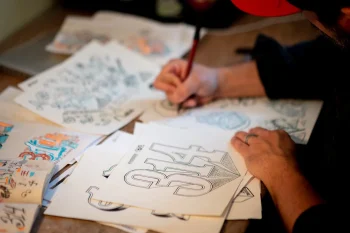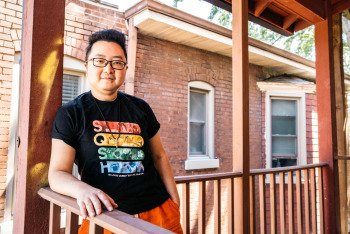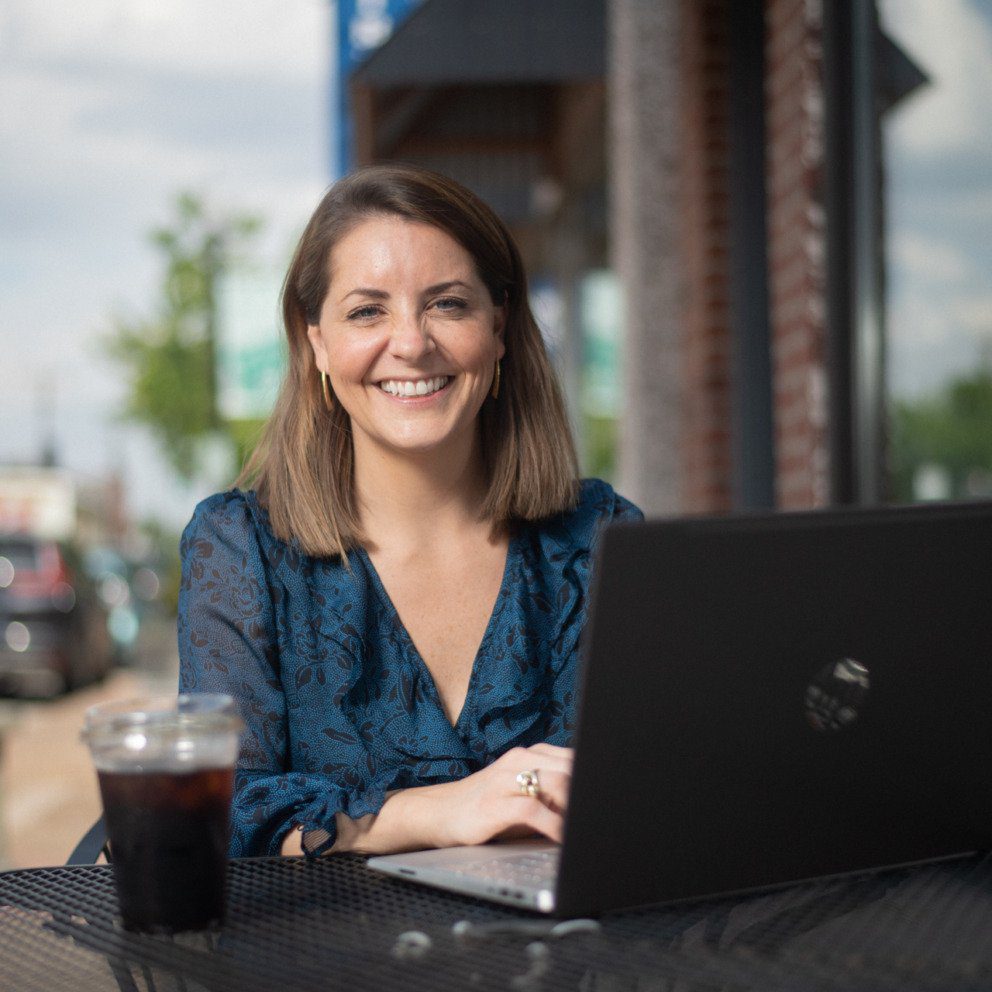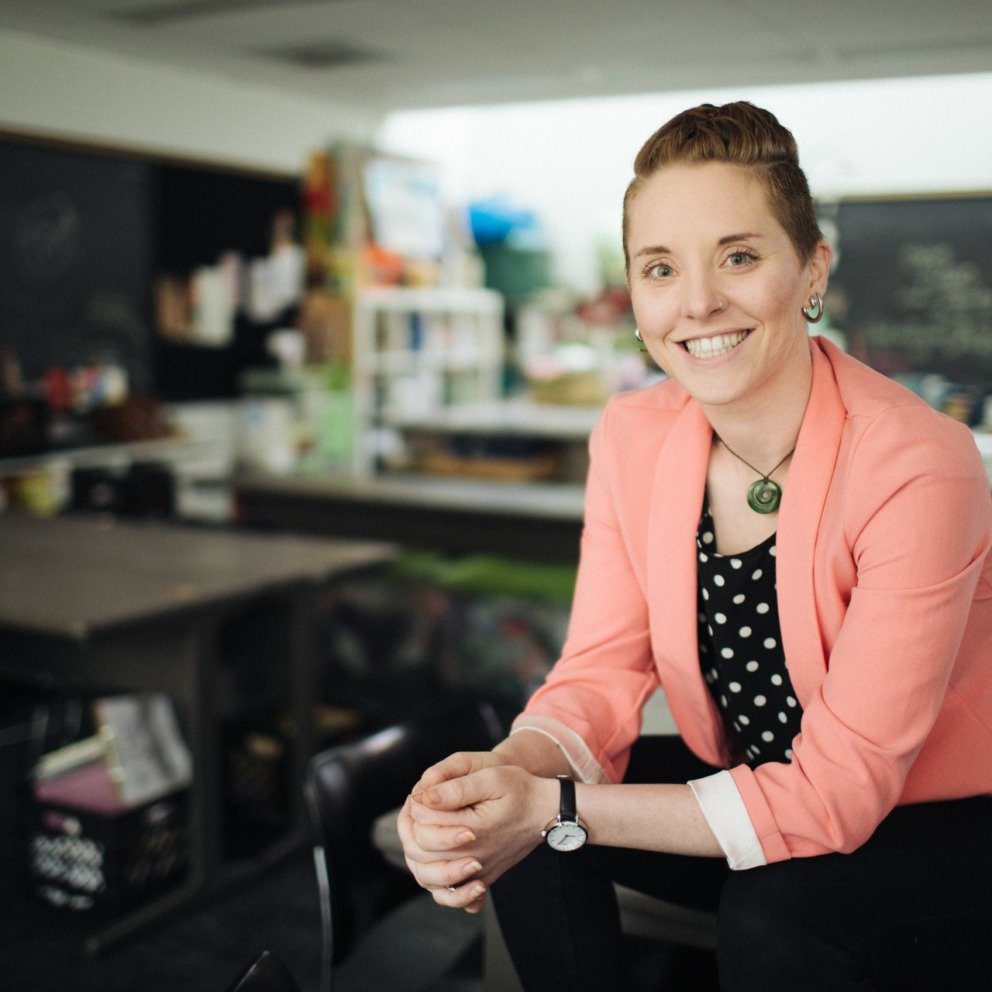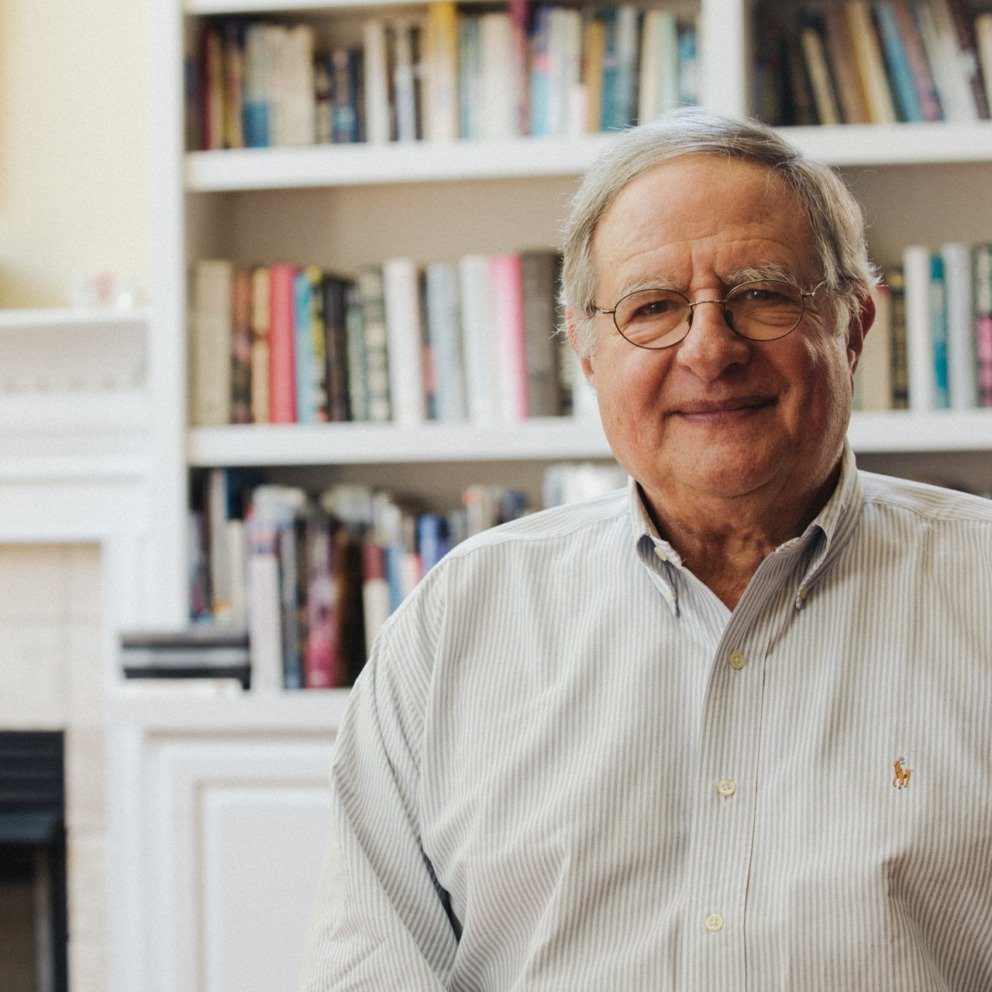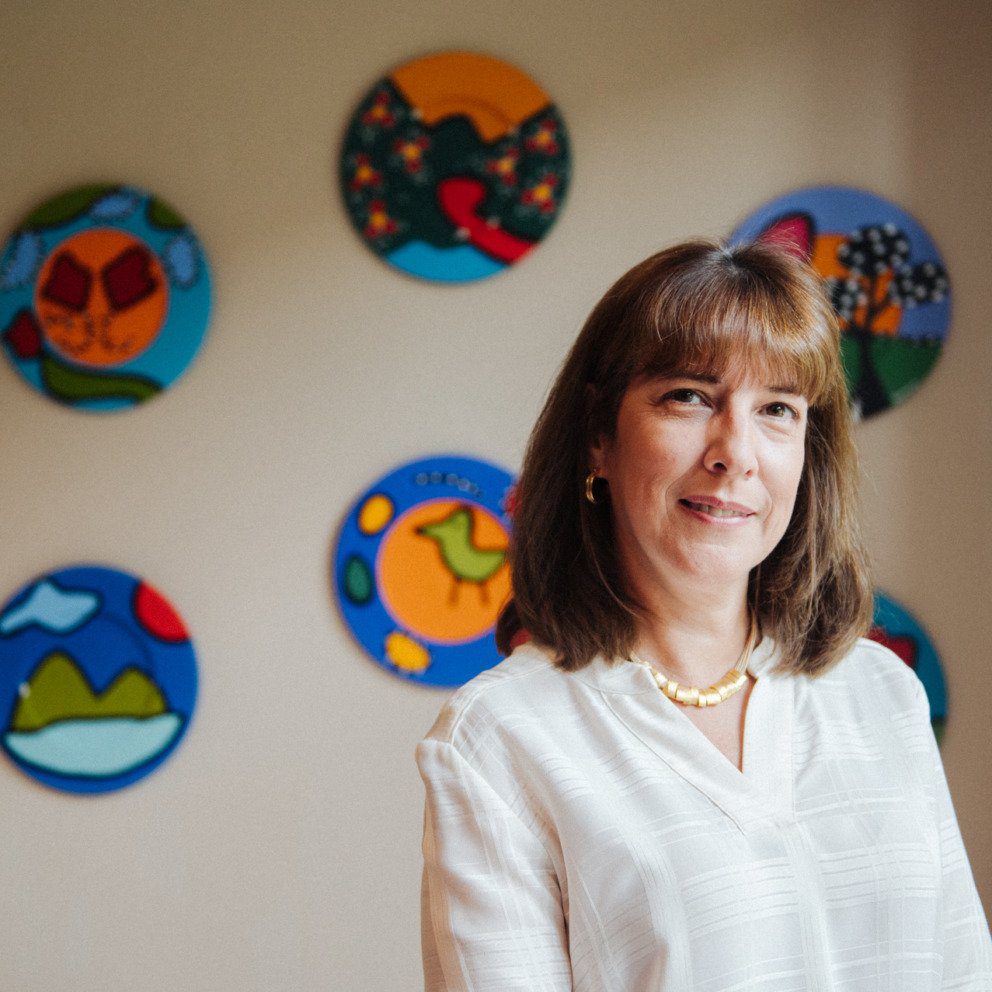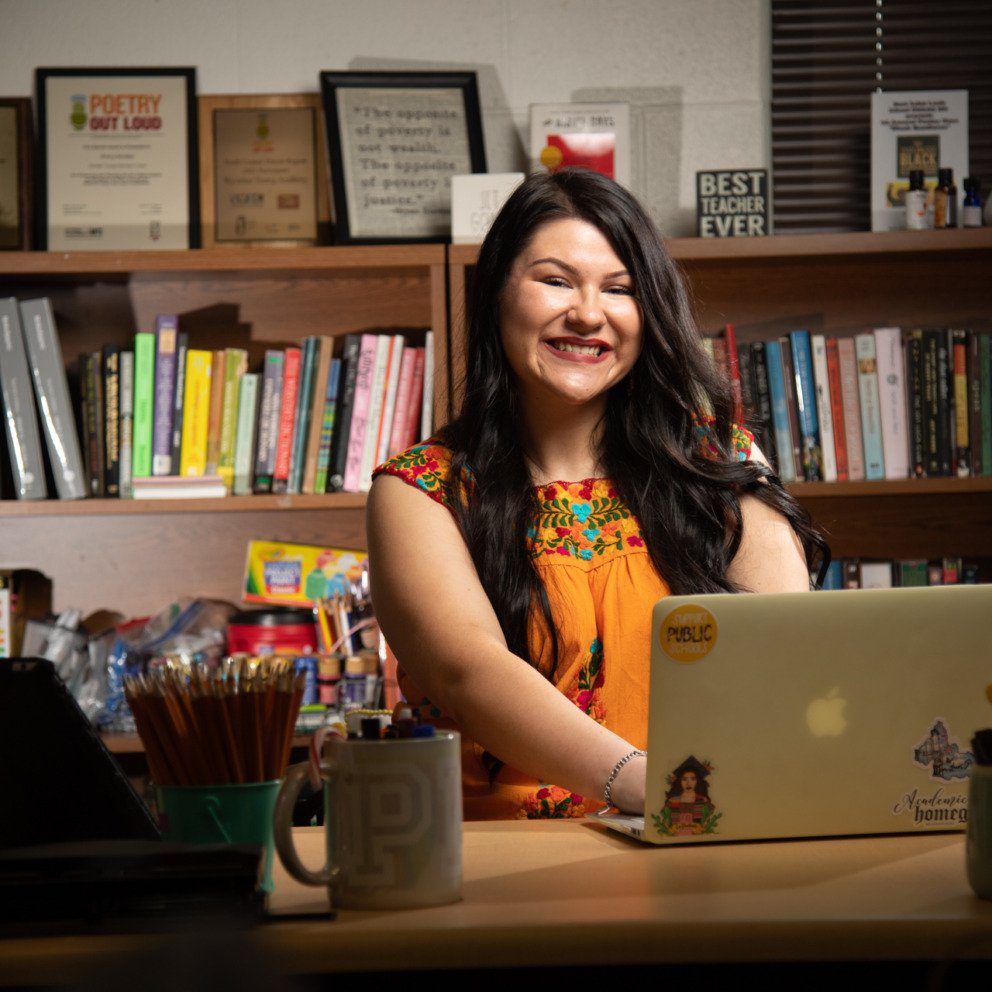Advocating for Inclusion
With the Starkloff Disability Institute, Colleen Starkloff works to make the world a place where people of all abilities feel empowered and valued.
When Colleen Starkloff talks about where it all began – how she became a nationally-recognized advocate for people with disabilities, helped found the nonprofit Paraquad, forced change in the St. Louis area that would allow for accessibility on public transportation for people of all abilities and was a key player in the fight to pass the Americans with Disabilities Act, she wants you to know one thing: It is a love story.
“I know exactly where to start this,” Starkloff says. “When I graduated from college, where I’d been studying physical therapy, I had a job waiting for me at the St. Joseph Hill Infirmary in Eureka. There was a man who lived there who was paraplegic because of a spinal cord injury. I was on the job the first day standing in the hallway, and I heard this whirring and squeaking sound coming down the hallway, and here comes this man wheeling along. I only saw the back of him, but on my second day, I was in my office planning my day, and in wheels the same guy. This time, I saw his face and saw this very handsome man with a great smile. There was just something about his countenance and eyes that tell me this is a good man – no ordinary person. I fell in love with him then and there.”
There’s no way that Starkloff can tell her story without mentioning her husband, Max, the man she met all those years ago who would go on to become not only her partner in life, but the person by her side as the two fought to make the world a more hospitable place for people with disabilities. Their work – so instrumental in bringing about the changes we take for granted today – not only altered the public sphere; it has changed the social consciousness surrounding how people see themselves and are seen in the world.
It was a fight the Starkloffs started on day one of their relationship. When they met in 1973, Max was already working hard to change a system that looked very different than today. Then, it was standard practice for people with disabilities to be institutionalized solely because of the expense of private care or adapting a home to a wheelchair. By the time they met when he was 35 years old, Max had been at the nursing home for nine years because his mother’s home was not accessible. From the facility, he watched as his friends got married and had families, and he longed to have the same and live out in the community with his peers. That desire led Max to lay the groundwork for an organization that would empower people like him to live their lives to the fullest outside of an institution.
“The idea was that we would have an environment for people with disabilities that was just not there at the time,” Starkloff says. “He said, ‘We have to change this,’ and I said, ‘Yes, we do.’ I loved him, but I was also taken by his drive to create a world for people with disabilities.”
That groundwork would lead to Paraquad, which the Starkloffs founded in the 1970s as an organization dedicated to removing the structural barriers – whether in infrastructure, at the workplace or at home – that prevented people with disabilities from living their lives to their fullest. One of their first agenda items was making public transportation more accessible, an effort that resulted in St. Louis becoming the first city in the country to have lift-equipped buses. The establishment of curb cuts and the City of St. Louis Office on the Disabled put the region at the forefront of the disability rights effort, thanks to the Starkloffs’ tenacity and hard work.
– Colleen Starkloff
The Starkloffs were not content to solely focus on St. Louis, however. The pair allied with others in the disability community to lobby for legislative changes at both the state and federal levels, resulting in the Americans with Disabilities Act, which passed in 1990.
“We’re called a melting pot because people of all nationalities and races can live together,” Starkloff says. “That’s what we want for disabled people. It’s human nature to raise yourself up and find dignity and better yourself. We want to live in a country where we can speak and legislate and change public policy to make that happen.”
One of the Starkloffs’ biggest efforts – and one that continued after they left Paraquad after 33 years to found the Starkloff Disability Institute – surrounded employment. As Starkloff explains, prior to their efforts and those of their allies in the disability rights community, the workplace was an inhospitable place for those living with disabilities because of both logistics and attitude. Conventional practice placed those who wanted to work in sheltered workshops and segregated from the workforce at large. Through their advocacy, as well as education focused on changing employers’ perceptions, she and Max were able to help employers understand how to welcome those of all abilities into their workforce.
“There is every reason to care about the employment status of people with disabilities, because the more people we have working, the more is contributed to the local and regional economies,” Starkloff says. “Right now, companies are looking for talent, and technology has leveled the playing field for disabled people to be equally competitive. It’s important to our local economy to have as many people working as possible.”
Though Max passed away in 2010, Starkloff has continued to forge ahead with the movement they have helped to create. She continues to work for the institute they founded, is a highly sought-out speaker and educator, and has recently turned much of her focus to universal design, a concept that takes into account all possible users when creating spaces, seamlessly integrating the needs of everyone, regardless of abilities, in order to realize a society where everyone feels empowered and valued.
“The world is changing,” Starkloff says. “I am not as dour as some people, who say we are not in the promised land yet. We’re not there yet, but we have come a long way since the 1970s when we got started with this. I can point out example after example of where the world has changed for people with disabilities. We’ve had to work on a lot of issues together and with people all across the country to create a world that is welcoming and not denigrating – to allow people with disabilities to retain dignity and self-respect and be contributing members of society.
I look back and think that, while we may not be there yet, we are well on our way.”
Join the Story
- Learn how you can be a part of the Starkloff Disability Institute’s efforts to make the world more welcoming for people with disabilities.
- Work with the Starkloff Disability Institute to help your company recruit and accommodate professionals with disabilities.
- Read our story about Inclusively, the platform that connects employees with disabilities to compatible jobs, and helps companies adapt to employees’ needs.

